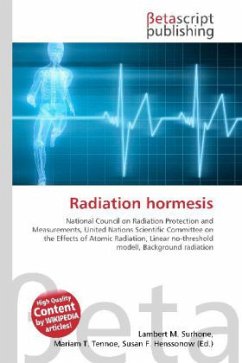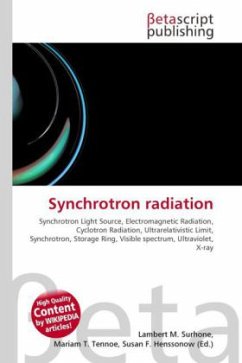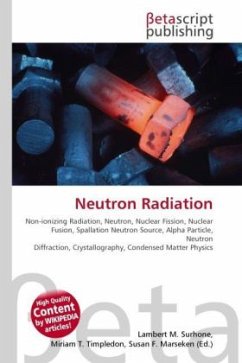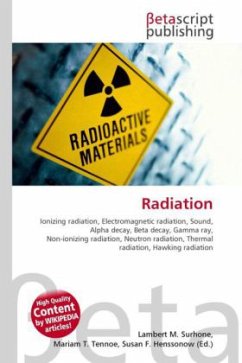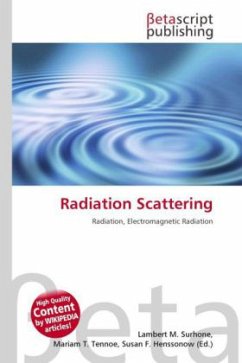
Radiation Scattering
Versandkostenfrei!
Versandfertig in 6-10 Tagen
45,99 €
inkl. MwSt.

PAYBACK Punkte
23 °P sammeln!
High Quality Content by WIKIPEDIA articles! Radiation scattering is the deflection of radiation (electromagnetic or products of nuclear decay) from its original path as a result of interaction or collisions with atoms, molecules, or larger particles in the atmosphere or other media between the source of radiation and an observation point some distance away. As a result of scattering, radiation may be received at such a point from many directions instead of only from the direction of the source. This phenomenon has been observed in nuclear bomb tests, explaining observed non-uniform patterns of...
High Quality Content by WIKIPEDIA articles! Radiation scattering is the deflection of radiation (electromagnetic or products of nuclear decay) from its original path as a result of interaction or collisions with atoms, molecules, or larger particles in the atmosphere or other media between the source of radiation and an observation point some distance away. As a result of scattering, radiation may be received at such a point from many directions instead of only from the direction of the source. This phenomenon has been observed in nuclear bomb tests, explaining observed non-uniform patterns of destruction and radiation. For nuclear bombs, the effect is especially strong for gamma rays and neutrons. Another example of radiation scattering is gravitational lensing. This effect may cause light from a single star to appear to be coming from two distinct points in space, when light waves are sufficiently "bent" by gravity from a massive object between the star and Earth.





